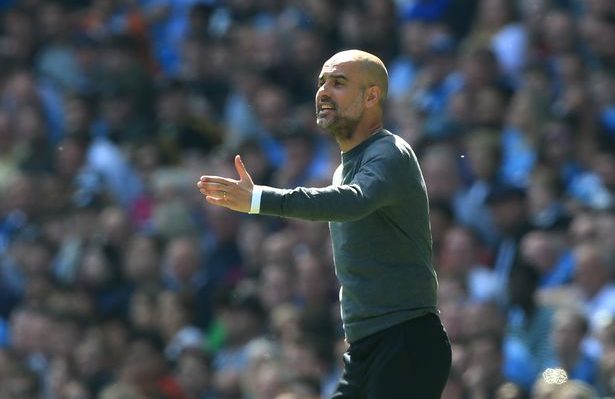Features
The effect of pre-match routines
Infographic: sports psychologist Dan Abrahams explains to Betway the importance of preparation ahead of big games.

Another enthralling Premier League season is over and Manchester City edged out Liverpool to reclaim the title with a whopping 98 points.
Pep Guardiola’s men have already won the League and League Cup double but they could wrap-up an historic treble if they manage to beat Watford in this weekend’s FA Cup final.
Victory at Wembley on Saturday evening would ensure this is Guardiola’s most successful season as Man City manager and it’s safe to say the Spaniard has transformed the club since arriving in 2016.
Guardiola has won countless trophies through wonderful football but many feel his success comes thanks to his attention to detail off the pitch. It was reported by the Mirror when Guardiola first arrived in England that changes to the players’ pre-match routine had played a huge role in their improvements on the field.
The former Barcelona manager overhauled every detail of the player’s lives, from their sleeping arrangements right down to their nutrition before and after games. The squad no longer had to stay at the clubs complex ahead of matches; instead they were allowed to spend the night at home with their families. Guardiola also made the players to eat breakfast and lunch together on match days, and the squad felt the little changes had a profound effect on their performances.
Unai Emery also overhauled the routine of the Arsenal players after taking over from Arsene Wenger last summer as the Frenchman’s techniques were understood to be outdated, while Tottenham manager Mauricio Pochettino also reported changed every little detail about his player’s routines ahead of matches and it led to better performance on the pitch.
This theory has been supported by sports psychologist Dan Abrahams as he explained to Betway the importance of preparation ahead of big games. The sports betting company took his findings to create this interesting infographic – which can be seen at the bottom of this article.
Good routine
As you can see, Mr Abrahams claims a good pre-match routine releases the right chemicals and engages the front part of the brain. An increase in blood flow to the front of the brain leads to a greater amount of oxygen-rich blood flowing around the body.
Positive hormones such as testosterone and adrenaline are also released which are essential building blocks of power, strength and speed. This leads to improved physical performance as players can anticipate quicker, will feel stronger and will make faster decisions.
All of this will mean better technique which will give the players a better chance of having a good first touch, make more accurate passes and shoot more accurately. Put simply, they’ll play better!
Bad routine
However, according to Mr Abrahams, a bad pre-match routine can lead to anxiety and stress, which will have a detrimental effect on performance. If a player hasn’t prepared properly for a game, the front part of the brain – which helps co-ordinate our muscles – tends to shut down and the emotional side lights up. This releases cortisol – a stress hormone – which damages co-ordination, increases the heart-rate and can give you the shakes.
Understandably, this will slow a player down and make them feel lethargic so they are much slower to anticipate and they can no longer see a 360-view of the pitch. A player will lose his first touch and their ability to play at the highest level as their motor skills get worse. Put simply, a player will play worse!
Ultimately, Mr Abrahams claims there are three psychological factors that can make or break a player’s performance:
Focus: In pressure situations, a player needs to focus on what they can control – which is themselves, their responsibilities and their mental skills.
Self-talk: Manage stress level by speaking to yourself.
Be rational: We can’t guarantee a win or a great performance, so take the mind away from the notion of ‘winning and losing’.
It’s certainly an interesting topic and there is growing evidence to suggest psychological factors have a huge baring on performance, and a pre-match routine has a role to play in this.




















